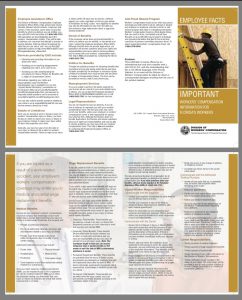 Florida’s workers’ compensation statute of limitations is outlined in section 440.19, Florida Statues (2017). The statute is particular with regard to the requirements workers’ compensation insurance carriers must satisfy to prevail on the SOL defense. This blog points out an approach not addressed in the statute which is used by carriers to bar claims through the SOL defense.
Florida’s workers’ compensation statute of limitations is outlined in section 440.19, Florida Statues (2017). The statute is particular with regard to the requirements workers’ compensation insurance carriers must satisfy to prevail on the SOL defense. This blog points out an approach not addressed in the statute which is used by carriers to bar claims through the SOL defense.
Section 440.19 appears to condition its application on compliance with section 440.185, Florida Statutes. Section 440.185 subsection (3) provides as follows:
Within 3 days after the employer or the employee informs the carrier of an injury the carrier shall mail to the injured worker an informational brochure (italics added) approved by the department which sets forth in clear and understandable language an explanation of the rights, benefits, procedures for obtaining benefits and assistance, criminal penalties, and obligations of injured workers and their employers under the Florida Workers’ Compensation Law.
One could conclude from reading sections 440.19 and 440.185, that a carrier’s failure to mail the informational brochure would absolutely prevent the SOL defense. Such is not the case. (Here is a link to the approved brochure: Florida Department of Insurance. Page one addresses the workers’ compensation statute of limitations.)
Case law has developed to allow carriers to succeed with the SOL defense without complying with the express language of the statutes. The loophole is that a claimant will be forever barred if the carrier is able to demonstrate the claimant had actual knowledge of the time required for filing a petition for benefits. This actual knowledge may derive from any source.
Once the carrier advances the defense of a statute of limitations in its initial response to the petition for benefits, section 440.19(4), as construed by the First District Court of Appeal in Crutcher v. School Board of Broward County, 834 So.2d 228 (Fla. 1st DCA 2002) and Tallahassee Memorial Healthcare, Inc. v. Coleman, 743 So.2d 1200 (Fla. 1st DCA 1999), “places the burden on the claimant to prove that he or she did not receive proper notice of such rights. Upon the satisfaction of such burden by a preponderance of the evidence, the burden of producing evidence to the contrary shifts to the E/C to show that notwithstanding its failure to provide claimant with the information required by the statute, including the appropriate limitation period, claimant otherwise had actual knowledge of the time required, which could have been provided by the employer other than through the method set out in section 440.19(4), or from any source.” Fontanills v. Hillsborough County School Board, 913 So.2d 28, 30 (Fla. 1st DCA 2005).
Section 440.185(3) indicates that the informational brochure must be “approved” by the Florida Department of Financial Services. This would suggest that while use of the department’s brochure (see the link above) is not required, the information contained in the carrier’s notice should be the substantial equivalent, including as to the statute of limitations.
Our first step in SOL defense cases is to obtain from the carrier all notices sent to the claimant. In some instances, notice has not been sent or cannot be found. Where “notice” has been mailed, we review the documents carefully for compliance with 440.185(3). In some cases we have discovered forms that fail to mention the statute of limitations.
While the SOL defense can be a case killer, do not assume defeat without first examining the facts. We have been pleasantly surprised in numerous cases.
***************************
Contact us toll free at 866-785-GALE or by email to learn your legal rights.
Jeffrey P. Gale, P.A. is a South Florida based law firm committed to the judicial system and to representing and obtaining justice for individuals – the poor, the injured, the forgotten, the voiceless, the defenseless and the damned, and to protecting the rights of such people from corporate and government oppression. We do not represent government, corporations or large business interests.
While prompt resolution of your legal matter is our goal, our approach is fundamentally different. Our clients are “people” and not “cases” or “files.” We take the time to build a relationship with our clients, realizing that only through meaningful interaction can we best serve their needs. In this manner, we have been able to best help those requiring legal representation.
 Florida Injury Attorney Blawg
Florida Injury Attorney Blawg

